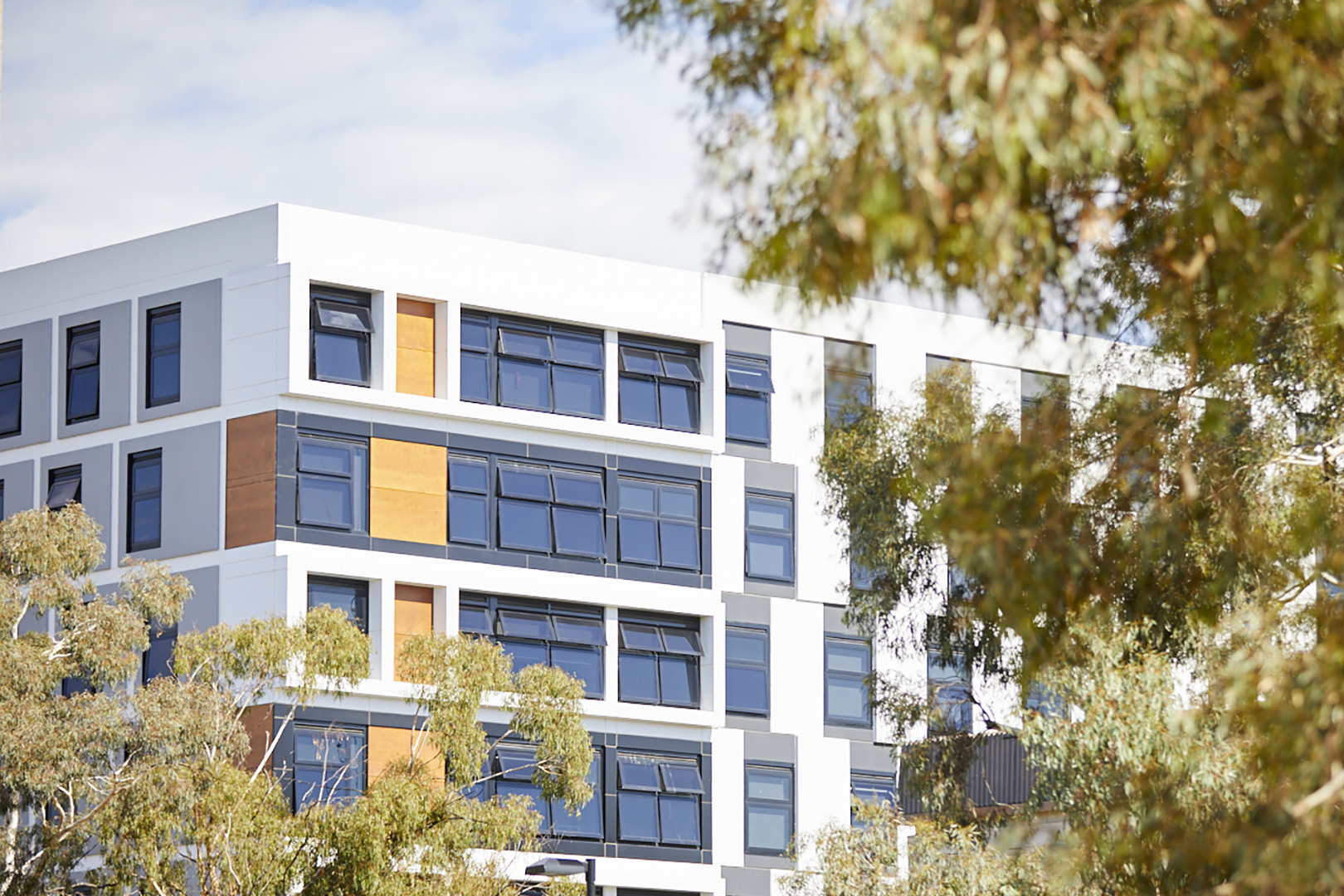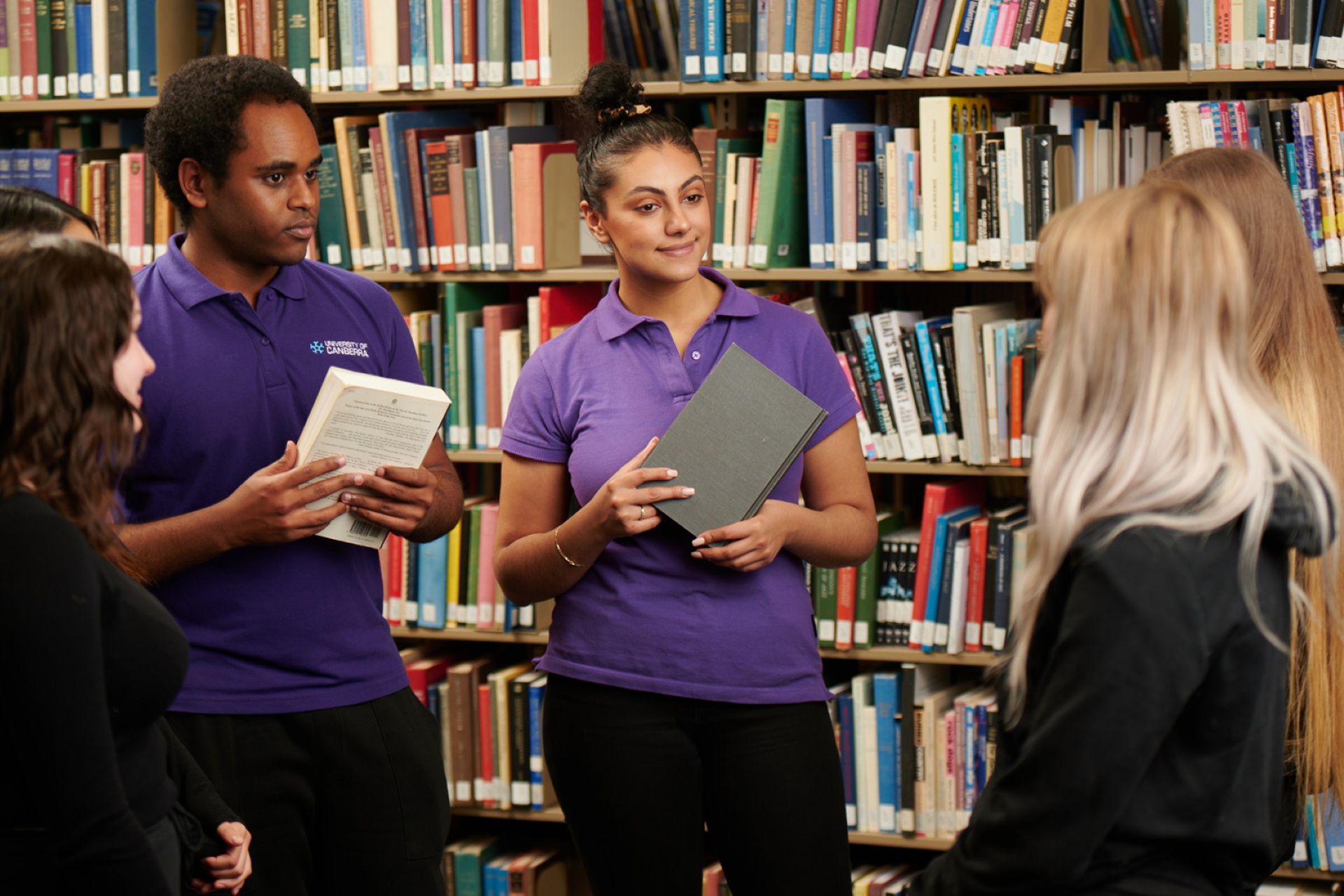Everything you need to get your child ready for university life

Making the transition from high school to university is a significant event for parents, carers and young adults. Filled with excitement, challenges, anticipation and a few nerves, it’s easy to feel overwhelmed.
Just like you, we want to see your child succeed as they take the next steps towards their future. In this guide, we’ll cover all the important things you need to know to help support your child and get them ready for university life.

Where to begin
Depending on what stage of high school your child is in, there are different levels of action required in supporting their university journey. Here's a good starting point to help you understand more about university and to kick start your planning and decision-making.
My child is in...
Talking about interests and abilities is a good way to ease into conversation about university options. Does your child have any ideas in mind about their future and what careers they would like to pursue? Explore their skills and interests and research some study options. With more classes to choose from in years 11 and 12, you can help your child pick the subjects based on their true interests.
Make sure you attend Year 10 information events at colleges and universities, and check eligibility for early entry pathways.
To study at university, your child must select the required amount of tertiary subjects in Years 11 and 12 to ensure they graduate year 12 with an ATAR. Visit the Universities Admissions Centre (UAC) website to understand what an ATAR is and how it is calculated. On the UAC website, you’ll be able to research admission requirements with your child for courses that they are interested in. This can be a great way to help your child stay motivated and goal orientated.
This is the time for students to focus on gaining the best ATAR result possible. We recommend attending career expos and open day events to learn what university may look like and what is on offer. Going to university events can help your child visualise themselves on campus; experience the facilities and make the university feel more familiar.
For students interested in taking a break before coming to study, it’s still worth attending events and researching courses so your child is prepared for when they’re ready to start uni. In most cases, enrolments can be deferred allowing time for breaks and gap-years, so UAC applications should be submitted as soon as possible, be mindful of deadlines such as the Early Bird, as closing dates and fee variances will be applicable.
At UC, students are able to start halfway through the year in the second teaching period (semester 2) if their chosen course includes this option. Keep an eye on key dates as not all universities follow the same academic structure.
Learn more about university
How is university different from high school? What does ATAR mean? What is an articulation? What are the differences between a course, credit, minor and major? Find out more below.
| Topic | High school | University |
|---|---|---|
| Attendance | Attendance in high school is compulsory. Students are expected to attend Monday – Friday, from 9am – 3pm. | Some university classes may not have compulsory attendance. Classes can start as early as 8:30am and as late as 8:00pm. Students are not required to be on campus every day, with the possibility for being only on campus two days a week! |
| Class structures | Classes in high school are set on campus with a face-to-face delivery. | Some university classes will have face-to-face delivery while some classes may be delivered online. There is also opportunity to complete a unit through industry-based learning. |
| Class numbers | Typically, 25–30 students with 1 teacher. | Some lectures can have over 100 students with 1 lecturer. While some tutorials can be as small as 10 students. |
| Timetabling | Class schedules are automatically set by the school. | Students have the flexibility to build their own timetable in most cases. |
| Time management | Teachers remind students when assessments are due and will ask for assessments to be handed in. | Students study independently at university and are expected to manage their own time and be mindful of deadlines. |
| Results | End of term/semester results are mailed to parents and carers. Student progress may also be discussed at parent/teacher interview evenings. | Semester results are only made available to students. |
| Teaching periods | High school typically has four terms, each approximately 10 weeks in duration. | UC students typically study over 2 semesters, |
| Holidays/breaks | Two to three week break between terms. | Students can have up to 2 months break between semester 1 and semester 2. |
| Student support | Teachers identify if students are having problems and approach you. | UC has a range of support services available to all students. It is the student’s responsibility to seek help. |
| Campus involvement | There may be sports teams, musical bands and other extracurricular groups. | UC has over 50 clubs and societies that range from academic, social, cultural and sporting. It’s a fantastic way to meet like-minded people. |
| Opportunities | Visits from guest speakers, school excursions and camps. | Students get opportunities to study overseas and gain industry experience relevant to their course. |
| Term | Definition |
|---|---|
| Accreditation | A certification of regulatory compliance in a specified subject or area of expertise awarded by a third party (usually a governing body). |
| Articulation | A tertiary ranking calculated from year 11 and 12 results that universities and other tertiary education providers can assess students for admission into a course. Other criteria may also be used in conjunction with an ATAR. |
| Australian Tertiary Admissions Rank (ATAR) | A tertiary ranking calculated from year 11 and 12 results that universities and other tertiary education providers can assess students for admission into a course. . Other criteria may also be used in conjunction with an ATAR. |
| Course | A program of tertiary study, usually taking three or four years to complete. When a student completes their course, they are awarded a degree. |
| Credit | The recognition of prior learning and skills, which can be applied against a nominated unit within a degree through meeting the learning outcomes. Students would no longer be required to undertake said unit, reducing the amount of study required to complete the course. |
| Deferring | A term used when a student receives an offer from a university but applies to delay their start date by six months to one year. |
| Degree | A qualification or award a student earns after completing their course of study. |
| Discipline | Similar to a department, a discipline is a particular field of study or focus of knowledge where academic subjects are managed and research is conducted. A group of degrees at an institution that share common themes, units and resources. |
| Double Degree | Where two degrees combine to create an extended degree, typically allowing students to completed two specialist majors. Please note, not all degrees are able to be offered as double degrees. |
| Faculty | A collective group of associated disciplines, run by a Dean who oversees teaching and research. |
| HECS (or HECS-HELP) | HECS-HELP is a government financial loan available to eligible students enrolled in tertiary studies at a higher education institution. Find out more at studyassist.gov.au |
| Honours | A one-year course for high-achieving students, typically undertaken at the end of a standard three-year bachelor’s degree. There are some undergraduate courses that will include an honours year. |
| Lecture | A class where a presentation is delivered by an academic or expert that contains course material and provides context, examples, theories and concepts to a group of students. |
| Major | A sequence of related units that form a student’s main field of specialisation within a degree. Students are required to undertake a certain number of units within this specific field to qualify with a major. |
| Mature Age Students (Adult learner) |
Students who are entering tertiary study and are aged 21 or over. |
| Minor | A sequence of related units that form a student’s secondary field of specialisation within a degree. Minors also require a certain number of units to be studied. |
| Adult learner | Students interested in commencing tertiary study that are not directly from year 12 completion. This could be someone from the workforce, someone looking for further studies, someone who didn’t complete their schooling, or someone who has spent time away from studies for a number of reasons |
| Packaged Offer | When a student doesn’t meet the direct admission requirements of a degree, they may receive a Packaged Offer that requires them to complete a program of study prior to commencing study such as a pathway program or English language program. |
| Pathway | Alternative entry methods into university that are not based on a raw ATAR score. |
| Postgraduate (PG) | Study that is typically undertaken after a student has already completed at least one undergraduate bachelor’s degree or equivalent. |
| Prerequisite | Prescribed conditions students must satisfy to enter a course. |
| Scholarship | Financial grants given to eligible students to help cover costs associated with university, based on merit, need, career or equity grounds. |
| School Leaver | Students who plan on studying straight after completing year 12. |
| Selection Rank | An adjusted score for entry into university consisting of a student’s ATAR plus any adjustment factors that they are eligible for and have been awarded. |
| Tutorial | A class intended to assist students in the understanding and practical application of information provided in the lecture. Also known as a ‘tute’. |
| Undergraduate (UG) | A student who has not yet completed any tertiary study. Most bachelor’s degrees are referred to as undergraduate degrees. |
| Universities Admissions Centre (UAC) | UAC processes applications for admission to most undergraduate and some postgraduate courses at participating institutions (mainly located in NSW and the ACT). For more info, visit uac.edu.au. |
| Work Integrated Learning | The unit of study that combines workplace experience with academic learning assessments and support. This is embedded in all our degrees at UC. |
Supporting your child during year 11 and 12 exams
Finishing high school can be fun and exciting, but it can also be stressful and overwhelming. Some students will be able to see their goals through and transition seamlessly into university, while others may need to find another way to get into their preferred course.
We’re ready to help.
It is important to be supportive of your child and encourage them to pursue their goals. Stumbles happen, and no two study experiences are the same. At UC, we don’t expect our students to know it all right away. We offer many resources and pathways to help support you and your child .
Here are some things that might help your child at this stage of life.

Make sure you set aside time to be there for your child so they know they can talk to you about how they are feeling.

It sounds obvious, but try to listen first before offering advice. Your child may need time to process how they’re feeling and might struggle putting results into perspective. Listen to their concerns and don’t minimise the situation. Once they’re ready, look into solutions together and offer reassurance.

When your child has reached the end of high school, celebrate! Whether they have received great results or they didn’t get the outcome they were hoping for, finishing high school is a big milestone. Take time out to do something together as a family. With support and encouragement, they’ll be given the tools to continue their journey towards their next adventure.
Depending on whether your child received their desired results or not, there are a number of different ways to meet university entry requirements. UC offers a range of direct entry options and pathway programs including UC diplomas, Portfolio entry and Schools Recommendation Scheme.
Find out more about getting into UC, including entry requirements, admissions programs, pathway programs and credit transfers.

If your child is currently completing Year 12 it is recommended they apply through The Universities Admissions Centre (UAC).
When you apply through UAC they will automatically be considered for Year 12 adjustment factors and can also apply for other university entry programs such as the Schools Recommendation Scheme and Educational Access Scheme.

Planning for uni
Help your child get organised by learning important dates, planning study costs and checking for any eligible scholarships.

Key dates
To support your child in applying on time and planning theirstudies, it’s important to be aware of some key dates and deadlines, such as application cut-off dates, teaching period information, census dates and more.

Fees and costs
Your UC study costs will depend on a number of factors including what course they have selected. Check the fees and costs you and your child will need to consider.

Campus accommodation
Whether your child is looking to live on campus or somewhere nearby, we’ve got them covered. Choose from campus 'ressies' where they can live with other students or find a place of their own elsewhere in Canberra.

Student support
UC provides a number of support options to your child which will assist in both their academic and pastoral care while at UC. Your child is invited to seek support if needed or they may be referred to one of our services by teaching staff.
Explore our courses
Life at UC
At UC, we know there’s more to university than just what’s in the classroom. Your child will have access to clubs and societies, sporting teams, competitions and campus events. With the best overall experience of any university in Canberra, there are so many ways to get involved at University of Canberra.
From accommodation options to living in Canberra, explore our pages below on life at UC.


No matter where you live or what your child is hoping to study, the University of Canberra Future Student Team is ready to answer any questions you or your family may have.

